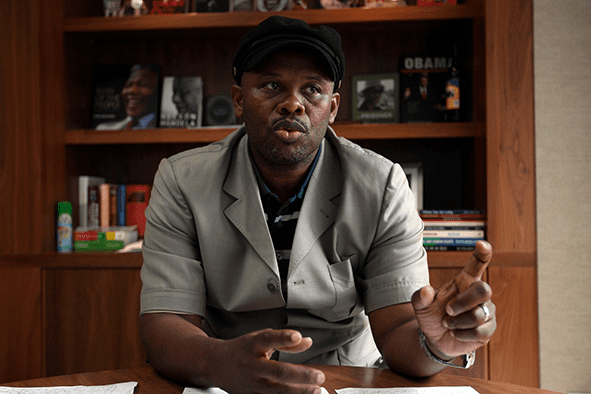If there was any lingering doubt about the gravity of the leadership crisis in the South African Police Service (SAPS), Lieutenant-General Shadrack Sibiya’s latest salvo — an additional affidavit submitted to the Pretoria High Court — should put such doubts to rest.
This supplementary document is no mere legal technicality; it’s a window into the internecine warfare at the highest echelons of the SAPS, and it forces the country to confront the rot festering within what should be one of its most critical institutions.
At the heart of Sibiya’s affidavit is a simple but devastating contention: the national commissioner of police, General Fannie Masemola, is not just a passive observer in the controversy around the political killings task team — he is the chief architect of its escalation.
Sibiya’s legal narrative is sharply constructed, naming Masemola’s actions as the pivot point that transformed an internal dispute into a national crisis, one that now threatens the very integrity of the judicial commission of inquiry established to untangle the mess.
In the style of all good intrigue, the plot thickens not just through the actions of police bureaucrats but through the interventions of heavyweights: the Acting Minister of Police, Professor Firoz Cachalia, and President Cyril Ramaphosa himself.
Sibiya’s affidavit marshals their criticisms as damning evidence that Masemola’s decisions are not merely ill-considered but fundamentally corrosive to the project of accountability and public trust.
The drama centres on Masemola’s unilateral decision to return 121 criminal dockets to the embattled task team — an act Sibiya blasts as both reckless and contemptuous of the ongoing judicial commission, chaired by Justice Mbuyiseli Madlanga.
Ramaphosa’s response damning
The move appears, on the face of it, as a display of command-and-control leadership. But Sibiya, deftly quoting Cachalia and Ramaphosa, reframes this as a destabilising act that undermines both the commission and the SAPS’s fragile internal balance.
Cachalia’s irritation is unmistakable, and Sibiya is quick to deploy the minister’s own words: “It is a concern, therefore, that steps are being taken in relation to this matter before the commission has had a chance to investigate the issues.”
In the world of government-speak, such language is as close to a public dressing-down as it gets.
What’s more, Cachalia’s frustration over Masemola’s refusal to produce a detailed report on the task team — despite repeated requests — is a direct indictment of the national commissioner’s commitment to transparency.
Ramaphosa’s response, as relayed by spokesperson Vincent Magwenya, is even more damning.
The president, never one to wade into operational matters lightly, is said to view Masemola’s intervention as “imprudent” and expressly cautions against any “tinkering” with matters under investigation by the commission.
That Sibiya can now claim not just ministerial support but presidential displeasure gives his affidavit a weight that goes beyond the courtroom — it signals a broader institutional crisis.
One of the more technical, but no less important, aspects of Sibiya’s affidavit is his explanation for its timing.
SAPS at war with itself
He is at pains to point out that the actions and statements by Masemola, Cachalia, and Ramaphosa all unfolded after the initial pleadings had closed, thus necessitating a supplementary filing.
In doing so, Sibiya preemptively heads off accusations of procedural mischief, insisting his only interest is to ensure the court has a full and accurate picture. It’s a necessary clarification, not least because the stakes are enormous.
The SAPS, already battered by years of scandal and declining public confidence, is now openly at war with itself.
The affidavit is explicit in linking Masemola’s conduct not just to bureaucratic missteps but to the larger question of public trust.
“I was appointed by the president to ensure the integrity of the SAPS during this difficult time and build public trust in this vitally important organisation,” Sibiya quotes Cachalia.
Does the new information help Sibiya’s case? The short answer is profoundly so.
By introducing the minister’s and president’s criticisms into the record, Sibiya bolsters his claim that Masemola is not merely a contentious figure but one whose actions have provoked concern at the very top of government.
This is not an internal spat between rival generals; it is a matter that has drawn in the executive branch itself.
Court’s momentous task
The new information reframes Sibiya’s position from that of an officer with a grievance to a whistleblower with a mandate for institutional integrity.
Moreover, by pointing to the lack of transparency and the undermining of the judicial commission, Sibiya shifts the narrative away from personality clashes and towards higher principles: accountability, rule of law, and the sanctity of independent enquiries.
In legal terms, this strengthens his hand immeasurably. In political terms, it lays bare the dangers of unchecked authority and the risks to South Africa’s battered democratic project.
On Wednesday, the Pretoria High Court will face a momentous task. It must adjudicate not just on the minutiae of police procedure but on the standards by which public institutions are held to account.



